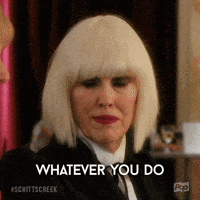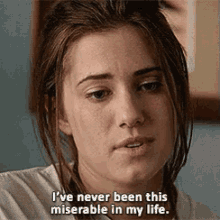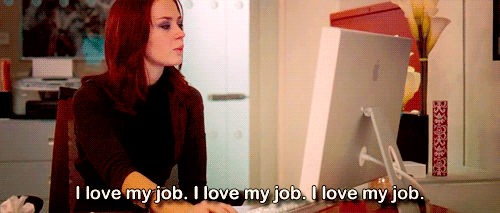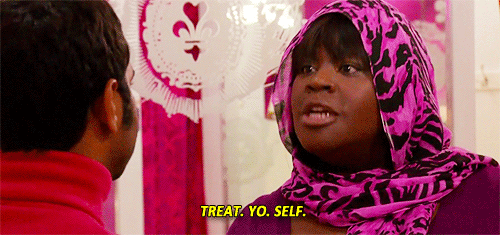Hi everyone
Thanks for all the love for last week’s (my first!) post. I’m really excited to keep showing up in this way and I especially love reading your questions and seeing how so many of us are going through so much of the same. So keep them coming! Email hi@aleen.co or dm me @aleen. Can’t wait to hear what you think of today’s column - feel free to add any advice for our submitters in the comments. Let’s get into it.
Dear Aleen,
I love that you're starting this as Betches has been a company. I, and I assume many other women specifically, have looked up to for almost 10 years now. My question is how did you have the confidence to start a brand publicly with the risk it may fail?
While Betches specifically may be a little different because it seemingly evolved more naturally out of college, at some point there had to be that time where you decided to make Betches a business rather than a hobby. Were you scared at that point and worried at all it would fail? How did you have the confidence to post about it and spread the word? Did you ever feel like anyone in your life would judge you for leaning into Betches as a business rather than the typical post-college career climbing the corporate ladder? Even while Betches started evolving into different channels and topics, did you ever worry and/or was there judgement around that?
Also, do the answers to the above questions differ for you because you started the business with 2 other people? Do you think if you were alone you would have still felt the confidence to grow Betches into what it is today? Do you have any advice for how to gain this type of confidence?
I am currently just a girl with a lackluster 9-5 (When's Happy Hour? is still my coffee table book), but have held back on some of my passions at the risk of failure and the potential embarrassment associated with it.
Thanks again for the entertainment from the past 10 years!
—
Hi -
I’m so thrilled that Betches has been a source of humor and help for you for so many years…and I hope my answer can be like your own personal When’s Happy Hour? sequel.
First I’ll answer your question about whether there was one moment when we decided to make Betches a business or to keep it a hobby. I can think of one pivotal moment when we knew we either needed to figure out how to make enough money to turn this into a career, or we would have to quit. And we all just said, you know what, let’s just fucking do it. And that was it, we never looked back. We all gave ourselves and each other that judgment-free moment to bow out and decided to bet on ourselves.
But of course, it wasn’t that moment that kept us going all these years. It took rolling positive signals to reinforce our confidence. Our first book deal, the first ad campaign we sold, the first person we hired, the first shirt we sold, the first press piece we did, and so on. These milestones continuously gave us the confidence to keep moving forward.
While my experience with Betches is highly specific, it sounds like you’re asking a common question about how to navigate starting a brand publicly given the risk it may fail. The tough thing about entrepreneurship is that no matter how hard you work, how much money you have, and how airtight your plans are, it still doesn't mean that you’ll succeed. No one knows that they’ll succeed when they start, and statistically, most start ups fail, even those run by people who are extremely confident in themselves and their ideas.
Deciding whether you should run your own business is not just about confidence (though it definitely helps), but about risk tolerance. You can be a very confident person but not be the particular type of confident person who enjoys the specific type of high risk/high reward reality that comes along with entrepreneurship.
Entrepreneurship is not for the faint of heart. The financial security you get from full-time employment, even in a lackluster role, is worth a lot. However, if you have the flexibility in your financial security, now is the time to risk it. Transparently, the reason I had the confidence to do that when starting Betches was because I was 21 years old and had no major expenses. I got my degree and spent the summer after college writing a book proposal that eventually led to a book deal with a small but not insignificant check. That was my first sign to keep going. I made a deal with my parents that I would postpone medical school for a year and be allowed to live at home (and eat on their dime) if I proved I could make sustainable money after that year. That was a privilege. If I were to start now, with two dependents, I would need to have saved enough to cover at least two years worth of expenses to feel like I can responsibly keep going. I’d need a safety net. But of course, like most people with “side hustles” you can mitigate that risk by starting while you have your regular job. I get into that a little later.
If you feel deep down that you really want to, and can handle, those types of emotional pressures, but you still feel a lack of confidence, the next thing to ask yourself is: am I lacking confidence in myself or my idea? To start a business, you need to believe in yourself and your idea. In that order. If you don't believe in yourself, but you believe in your product, then you have to find someone else to build it.
If you decide that you’re actually not totally sold on your own idea, then keep working at it until you are, or until you decide it’s okay to put an idea to bed. Even if you don’t move forward, the experience of tuning into yourself and deciding all those things – even committing the time to write to me about it – is all part of building up your own inner resumé. Some of the most important moments for your personal growth will be invisible on paper, but you never know which tools, connections, or lessons will become helpful later.
Now let’s say you have a business idea that you really love and can’t stop thinking about it. Another thing that can give you confidence is the process and time spent working on something. If you can’t quit your job, commit to working outside the hours of your job and personal responsibilities. There’s the 9-5, the 5-9, and then the 9-12ish+. As miserable as those round-the-clock hours sound, the reality of life is that everything is a sacrifice. No matter how you splice it, you will always have to sacrifice comfort for growth.
When you see progress, it will be even more fulfilling, and it will not only give you the confidence to keep going, but hopefully some financial room as well. The more you put yourself out there, the more will happen to you. It’s definitely not comfortable to put yourself out there, but the only people with 100% unflappable confidence are usually conning someone into something. I definitely don’t have anything close to complete confidence. I can barely post on insta without second guessing myself. Most people who seem confident actually doubt themselves all the time! They just don’t show it on social - which is totally normal. And you know what’s really fun? Proving people wrong. Use that self-doubt to propel you forward. Just remember: you will be cringe, until you’re not. And even then you’ll still be cringe.
On that note, in terms of what other people think of you. When those thoughts creep in for me, or I feel the natural urge to compare my own success with someone else’s, I’ve worked hard (and continue to work hard) to wire my brain to shut down those thoughts and say the words: You Are Playing The Long Game. This means that in time, you can see yourself successfully achieving your goals and vision. Plus, there is room for more than one success story. There will always be people more successful ahead of and less successful behind you at every step - and you never know, those behind you may actually be looking at you as their aspiration.
Plus: failure is not bad. I know that everyone says that, but there is truly nothing that drives me more than failing or fucking something up. Don’t get me wrong it definitely feels terrible. But if I do well, I’m like “great, thank you next.” But if I fuck up, I am doing everything in my power not to make that same mistake twice. I’ll probably get 4 steps ahead through that fail-and-learn process versus the 1 or 2 steps I’ll take after a success. It works.
Here’s what I’ll end with. When playing the long game, you must be prepared for many years of hard work. There’s only one thing we can know for sure: the future is unpredictable and shit happens. Confidence is fleeting. It comes and goes. Even the belief you have in yourself may become damaged and affected at some point. Even your vision might get blurry at times. (As in for the business, not like your eye vision. I mean you may have to get glasses at some point but no that’s not what I mean and why am I still typing?). This is when your support system really matters.
So to answer one of your last questions, having my two confounders was the biggest blessing. Sure it’s a lot of cooks in the kitchen sometimes, but when one of us faltered or questioned, the other two doubled down and said we got you. I’m not saying you need co-founders, but you need people who can remind you and show you why you should believe in yourself when you feel the opposite. You can’t do it alone, nobody can. Whether that's a very close friend, a mentor, or your parents, a sibling, a significant other, whoever. You need a system that emotionally backs you.
Actually, that’s exactly why I started Please Advise.
Good luck. You got this.
Aleen
Dear Aleen,
Love Betches and all that you do.
I would love to hear any advice you have on addressing mom guilt about working, but also more broadly. I know in my heart that my work is important for me as a full human being and for a wider audience (I'm actually a psychiatrist and specialize in - believe it or not - pregnancy and the postpartum period!). I know all of the things about working moms and wholeheartedly believe with my heart that you can't pour from an empty pitcher and that not only is working fine, but for me, necessary, as is self care. I am being a role model for my children who, by the way, love their daytime caregivers/school. (No shade to stay at home moms at all - I KNOW that it is an extremely hard job that I personally don't feel cut out for and am glad to have other options!).
And yet - I feel guilt for not being a SAHM. I feel guilt for taking time for myself. I feel guilt for not being physically and mentally there for my kids 24/7 even though that expectation is unreasonable and probably inadvisable. This is probably the product of a life of this message being passed on to me and I just need to work on rewiring my brain... but it's hard. And if I struggle with it, as someone who truly knows all the things and believes it for others, then it must be basically universal. I would love to hear your thoughts on this concept.
I should probably sign this anonymously because this admission is a little bit embarrassing as someone who talks the talk but needs to do a better job walking the walk.
Sincerely,
Constantly Guilty
—
Hi Constantly Guilty
When I tell you that I get it, I mean that I GET IT. I could not get it more. This is so real and incredibly annoying but also sad for us collectively. We can be riddled with guilt despite knowing that we’re making the right choices for ourselves and our families, and that guilt can ultimately prevent us from enjoying the life we so badly want to live.
As much as I’m tempted to get into the causes of guilt, I don’t find it particularly helpful when it comes to managing it. But obviously we can’t ignore them. The most probable reasons are societal (the pressure on mothers as default parents plus the retrograde trend of emphasizing more traditional gender roles), familial (maybe your mom was home a lot and you feel guilty that you aren’t doing the same, or the opposite), and of course biological (the undeniable pull between mothers and children, especially when it comes to breastfeeding and all things postpartum).
But knowing all those causes for guilt doesn’t seem to assuage the feeling. So I’m going to share with you a little bit about how I process my own.
It starts with values. I never consciously considered my values as much as I do since having kids. Probably because my time is now much more limited, I realized that in order for me to live the life I want to live, I need to align my time with my values. This basically just means prioritizing the most important things in your life, and tending to them in that order.
I value having a close knit family with happy and healthy kids, and then about a quarter step below is my career and financial stability. Then a solid step below that I have my personal and health routines aka “self care” (which I know people are like, WAHHH PUT YOURSELF FIRST)...I hear you, and I’ll sometimes put myself first when I need to, but it’s not my default, and it is what it is at this stage in my life. I’d rather spend time with my babies or work on a big project than try to cook, exercise 5 days a week, or paint an hour every day. That said, I do find time to lift weights, paint, and I’ll boil some pasta on occasion. But it’s not at the 100% level that I will typically give to my family and my work. Plus there are other things on the list too, like friends, traveling, and sleep (all of which I prioritize sometimes) but in this phase of life I devote much less time to those categories, and that’s often where the guilt can creep in.
I remind myself that this list of values is one that’s dynamic, as each item in the list is constantly moving up or down. So when I’m feeling particularly guilty about not spending time with my kids if I’m working, I remind myself actually I enjoy working (the fun parts and the challenges) and I would enjoy it even more if I was not spending time allowing that guilt get to me and instead being fully present and in the moment.
That’s why those cliches about ‘balance’ or 'having it all’ don’t actually make any sense, because balance suggests that things are equal when in reality, they’re rarely equal. I really like how Emma Grede puts it in that life is just a bunch of trade-offs. But I’ll add that it's just a bunch of trade offs that fluctuate at all times. Achieving perfect balance actually shouldn’t even be something we strive for because in that case, you’re never giving 100% to any one thing, and to me that’s even worse.
When it comes to the specific realm of guilt around being a SAHM or not, I handle it by reminding myself that I do not want to be a SAHM which is something that you seem to do as well. So perhaps that’s when we start to examine that guilt a bit closely and ask ourselves, “is what we’re feeling actually guilt or are we taking on our children’s perceived emotional distress as our own?”
I actually learned this from Dr. Becky. Here’s a really great video where she talks about it. She says that real guilt comes from not being aligned with your values (as we talked about above). But if all is actually aligned, then what you’re experiencing instead is your body taking on the other person's feelings and feeling it for them. And once you acknowledge that, you’re able to choose a different cognitive behavioral path than attempting to assuage the guilt because you’re now solving a different problem.
Obviously this isn’t some magic solution, but understanding the distinction really helps manage it. There was one particular time that I can recall that my (perceived) guilt was actually quite overwhelming which led me to break down to my friend at dinner. I was giving my daughter Mila a bath and she said “mommy are you going to work tomorrow?” and I said “yeah honey, Mila goes to school and mommy goes to work.” And she said “Ohhh, I miss you. I don’t like when you work.” I froze. I gave her a hug and I just started tearing up. I didn’t know how to manage my emotions in that moment so I just pushed them down. Classic.
So later when I grabbed dinner with my friend, I completely lost it. She essentially said the same things to me that Dr. Becky did, which was that you love to work so what are you going to do? Work less? That won’t make you happy. I explained I know, but it feels so miserable to see her so upset when she doesn’t understand. And my friend said, “so help her understand.” It was so simple and yet so brilliant. She recommended that I bring my kids into my world a little more and be extra explanatory (to the degree that’s appropriate for them) about what I’m doing and why it’s important to me. They will understand.
So one Friday afternoon, I set my toddler up with a seat next to my home office desk and had her write “work” notes on a note pad. Her smile was huge. She even said, “I’m working with mommy!” Another time, I brought her to the Betches office to see where I go when I "take the train to the city.” At some bedtimes, I’ll tell her about my day after I hear about hers. And if I do miss a bedtime, I’ll leave a little love note for her to find in the morning so she knows I came home and thought of her. The goal is to make her proud that I work rather than sad, confused, or resentful about when or why I’m not physically present. Knowing that I’m actively working towards this can help me feel less shitty about it all, because I know I’m passing onto her something important, even when I’m not physically present all while she’s learning how to manage her emotions. After all, I’m extremely proud to be a daughter of a very hard working mom and I really respect her *specifically* because I know how smart and capable she is.
And if all else fails, try to remember that everything in life is a phase, and it just happens to be that this phase is probably the most emotionally intense and hands-on, but it is also filled with so much love. We’ll look back when we’re in a later phase and may wish we were in this one.
Also can you not feel embarrassed or guilty for feeling guilty. You might implode.
Aleen
Thanks again for reading. If you loved it, leave a comment and subscribe. Submit your questions to hi@aleen.co and see you next Sunday.










I really needed to hear this today.